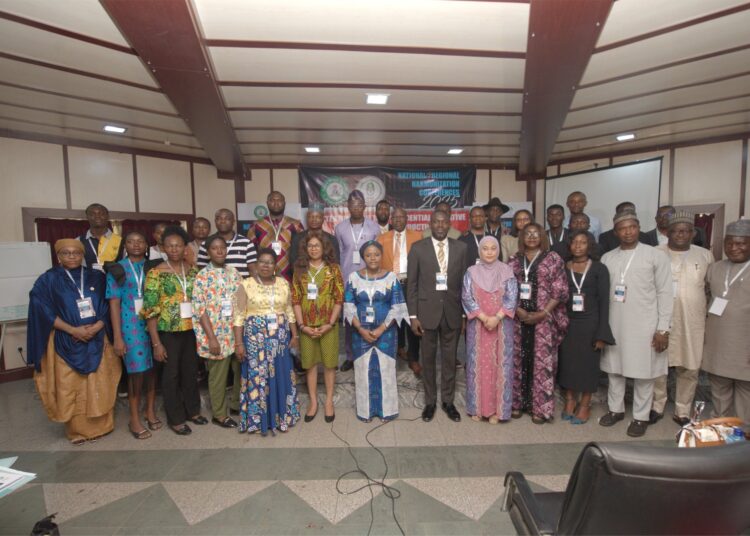Pharmaceutical and public health experts have called for urgent policy harmonisation and more substantial support for local manufacturers to secure Nigeria’s access to medicines, vaccines, and other health technologies.
Speaking at the National and Regional Harmonization Conference 2025, themed “Contextualising the Presidential Initiative to Achieve Local Production of Medicines and Vaccines in Nigeria, “Omotayo Hamza, Supply Chain Management Officer at the World Health Organization (WHO), emphasised that access to essential medicines and vaccines is a human rights issue that no country should compromise.
“Under no circumstances should a woman in labour get to the hospital and there’s no ampoule of oxytocin, or a pandemic hits and we can’t access medicines due to nationalisation by other countries,” Hamza warned.
He noted that despite Nigeria’s robust pharmaceutical landscape with over 150 registered manufacturers, poor policy implementation, fragmented efforts among ministries, and infrastructural challenges continue to hinder progress.
“Our major challenge is implementation. Ministries like Trade, Health, and Science must harmonise efforts to create an implementable, strong agenda. Otherwise, manufacturers will continue to struggle, facing issues like multiple taxation, power generation, and poor infrastructure,” he said.
Hamza highlighted WHO’s efforts to support local pharmaceutical growth, including technical assistance for companies seeking WHO prequalification, which helps them compete internationally.
Addressing concerns about trust in the country’s upcoming vaccine production efforts, Dr. Chinele Okonkwo, a pharmacist, noted that stringent regulatory processes and clinical trials are already in place to guarantee safety and efficacy.
“There’s no shortcut. Before any vaccine or drug gets to clinical trials, agencies like NAFDAC must approve its safety and effectiveness,” Okonkwo said.
She emphasised that Nigerian pharmaceutical companies, particularly those in Lagos, meet global standards and should be trusted more than some imported medicines because vaccine cold chain management within Nigeria could better guarantee potency.
The Project Coordinator at the National Institute for Pharmaceutical Research and Development (NIPRID), Dr. Olajide Adebola, stated that the conference aimed to consolidate efforts among stakeholders at national and regional levels to advance medicine and vaccine security.
“The government’s Presidential Initiative on Unlocking the Healthcare Value Chain (PIVAC) is creating enabling policies such as tax waivers and removal of import duties on pharmaceutical consumables,” Adebola said.
He assured that the current administration is building on structures set by previous governments, including establishing a National Vaccine Research and Development Plan (2024–2034), targeting the creation of at least three human vaccine factories.
As Nigeria marked World Malaria Day, concerns about the high cost of malaria drugs were raised. Adebola noted that work is ongoing to lower medicine prices through increased local manufacturing, eliminating multiple taxation, and encouraging local production of active pharmaceutical ingredients (APIs).
“Shortly, Nigerians should begin to see reduced medicine costs,” he assured.
However, he acknowledged persistent challenges, including power shortages, water infrastructure, and workforce gaps, which inflate production costs and medicine prices.
Despite the challenges, he expressed optimism. “We are not where we used to be; there is hope. Government commitment and stakeholder collaboration set Nigeria on the right path to medicine security and health sovereignty.”











